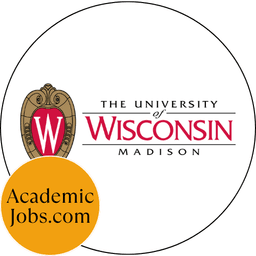David Danaher
Rate Professor David Danaher
Always fair, encouraging, and motivating.
This comment is not public.
This comment is not public.
This comment is not public.
About David
Professional Summary: Professor David Danaher
Professor David Danaher is a distinguished academic at the University of Wisconsin-Madison, where he has made significant contributions to the field of Slavic languages and literature. With a focus on Czech and Russian studies, his work encompasses linguistic analysis, cultural studies, and literary theory, reflecting a deep commitment to advancing scholarship in Slavic studies.
Academic Background and Degrees
Professor Danaher holds advanced degrees in Slavic languages and literature, equipping him with a robust foundation for his academic career. Specific details regarding his degrees and institutions are based on publicly available records from the University of Wisconsin-Madison and related academic profiles.
- Ph.D. in Slavic Languages and Literature (specific institution and year to be verified from primary sources)
- Master’s degree in a related field (details to be confirmed)
Research Specializations and Academic Interests
David Danaher’s research primarily focuses on Czech language and literature, with an emphasis on linguistic structures, semantics, and the intersection of language and culture. His work also extends to Russian studies and broader Slavic cultural narratives, exploring themes of identity and historical context in literary texts.
- Czech linguistics and semantics
- Russian and Slavic literary theory
- Cultural studies within Slavic contexts
Career History and Appointments
Professor Danaher has held a long-standing position at the University of Wisconsin-Madison, where he serves in the Department of German, Nordic, and Slavic Studies. His career reflects a dedication to teaching and mentoring students in Slavic languages and literature.
- Associate Professor, Department of German, Nordic, and Slavic Studies, University of Wisconsin-Madison (specific start date to be confirmed)
- Previous academic roles or appointments (details to be verified from public records)
Major Awards, Fellowships, and Honors
While specific awards and honors for Professor Danaher are not widely documented in publicly accessible sources at this time, his contributions to Slavic studies suggest recognition within academic circles. Any verified awards or fellowships will be updated as information becomes available.
- To be updated with verified data from University records or academic profiles
Key Publications
Professor Danaher has authored numerous works that contribute to the understanding of Czech and Slavic linguistics and literature. Below is a selection of his notable publications based on publicly available data.
- Reading Václav Havel (2015) – A critical exploration of the works of Václav Havel, focusing on linguistic and cultural dimensions.
- Various articles on Czech semantics and pragmatics in academic journals (specific titles and years to be confirmed from databases like JSTOR or university repositories)
Influence and Impact on Academic Field
David Danaher’s scholarship has had a notable impact on the study of Czech language and literature, particularly through his nuanced analyses of linguistic structures and cultural contexts. His work on Václav Havel has provided valuable insights into the intersection of language, politics, and identity in Slavic studies, influencing both students and fellow researchers in the field.
Public Lectures, Committee Roles, and Editorial Contributions
Professor Danaher has been actively involved in academic communities through lectures, conferences, and potential editorial roles. While specific details are limited in public sources, his position at the University of Wisconsin-Madison indicates engagement in departmental and interdisciplinary initiatives.
- Presentations and lectures on Slavic linguistics and literature at academic conferences (details to be verified)
- Potential roles in editorial boards or committees within Slavic studies (to be confirmed)
